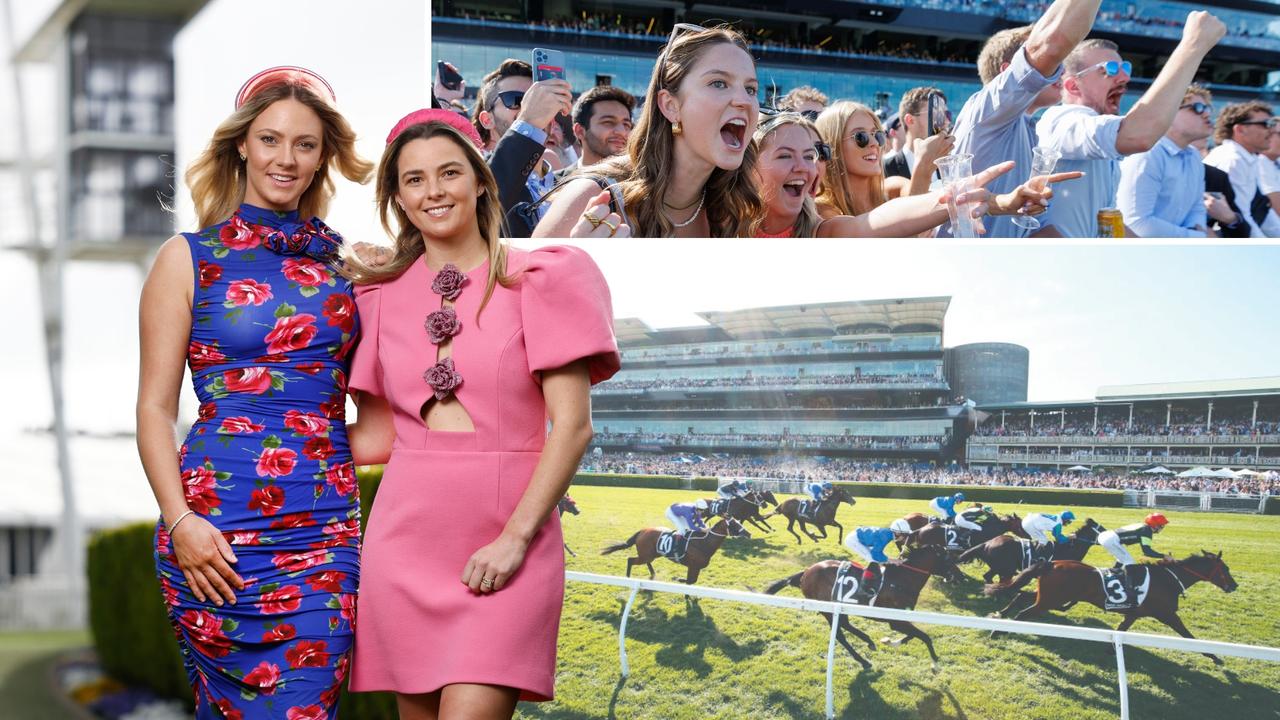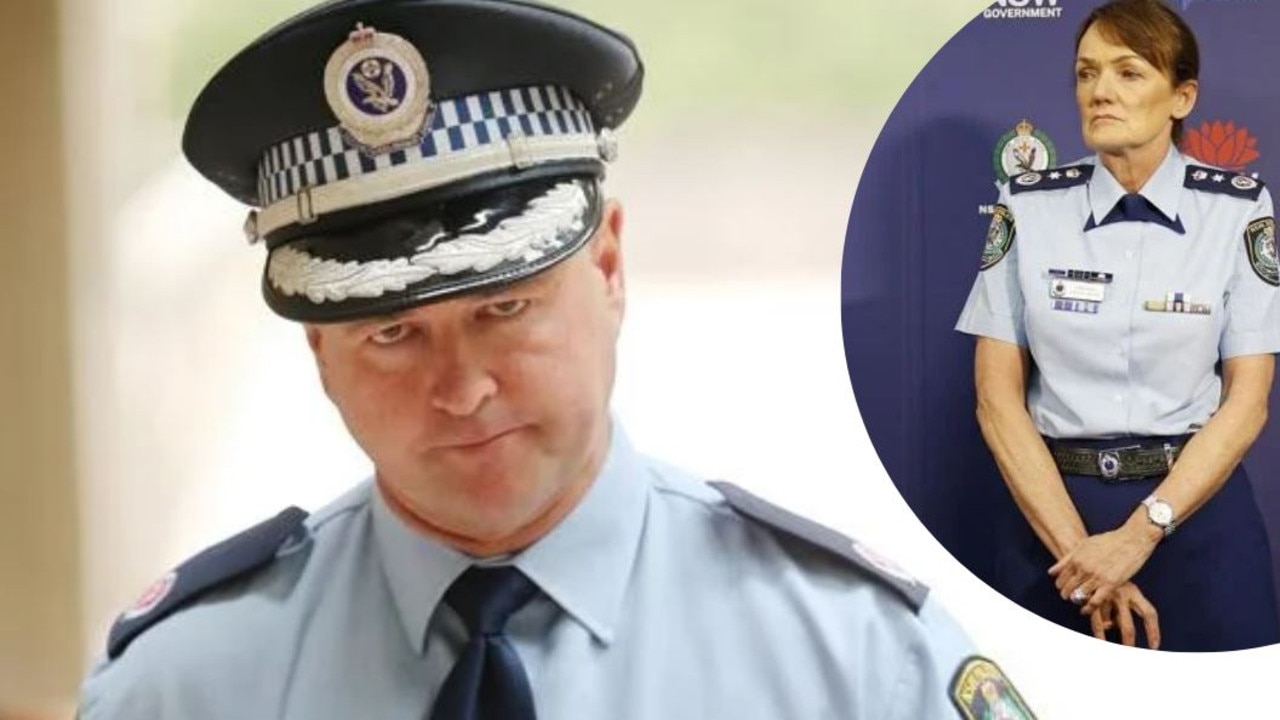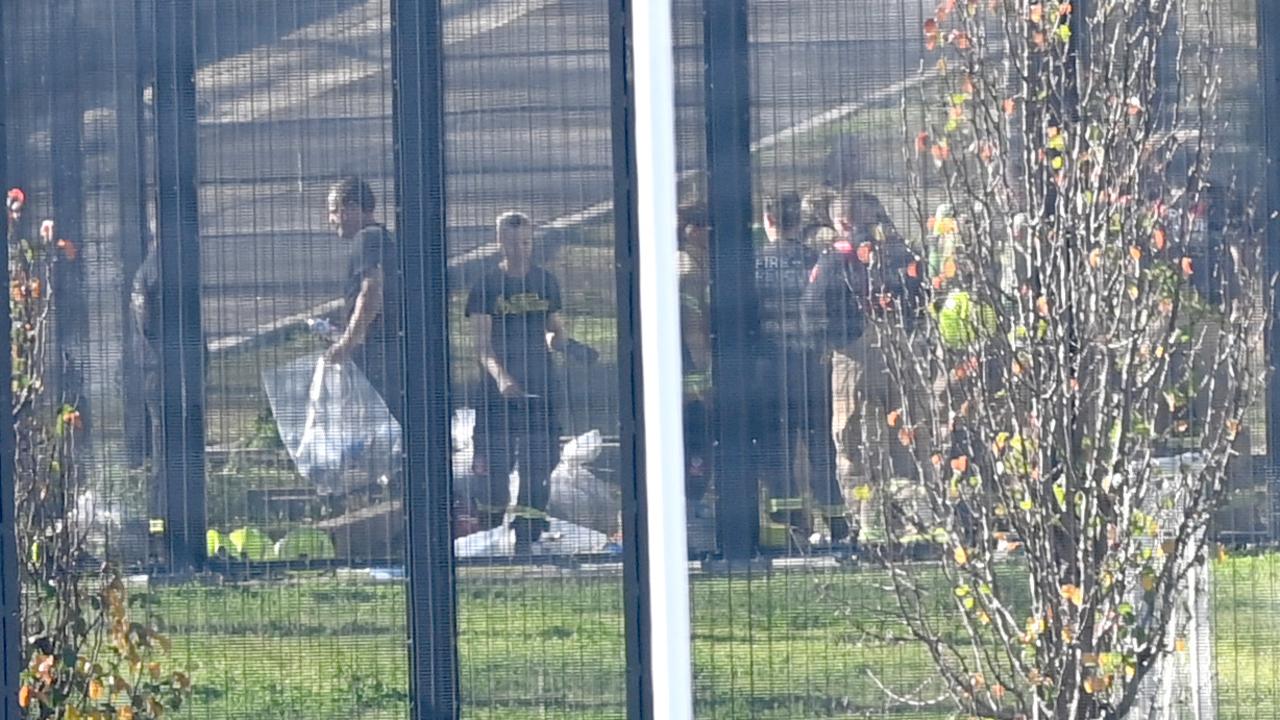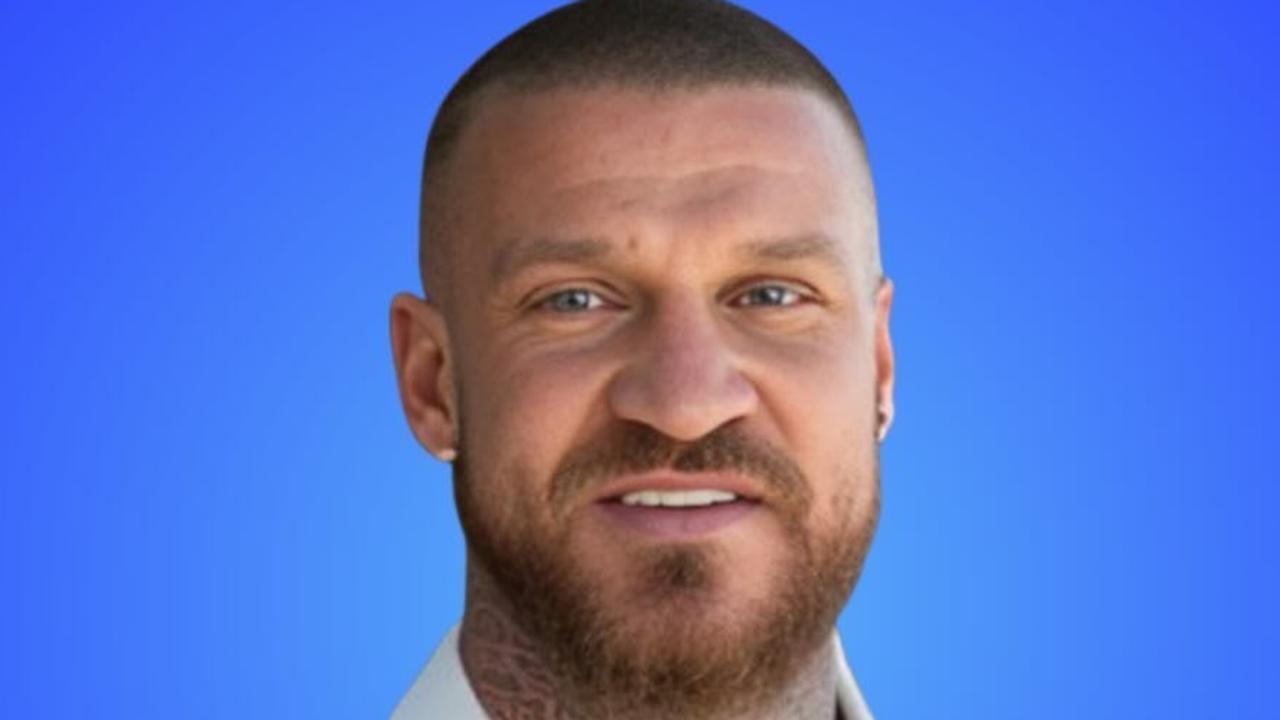Grant Hackett talks about family, work and why he feels sad when he looks at his swimming medals
For 20 years, Grant Hackett has tried to outswim the sadness of coming second. The ‘eternal dissatisfaction’ of the elite athlete means he didn’t win silver, he lost gold. But that brutal reality of sport made him who he is today.
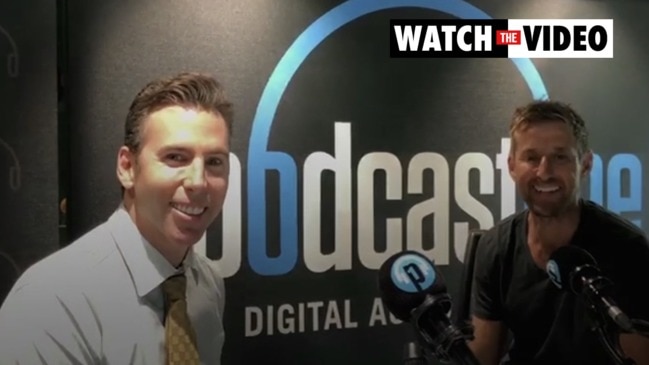
NSW
Don't miss out on the headlines from NSW. Followed categories will be added to My News.
There’s an element of “eternal dissatisfaction” in the mind of a high-performing individual, admits Grant Hackett – and he knows it, because he’s lived it.
It’s been 20 years since he came home from the Athens Olympics, and still to this day, looking at his silver medals brings an overwhelming sense of sadness.
But that’s who he is. The determination to do well. The desperation to be the best. That innate desire for gold – they’re the reasons he got there in the first place. And he gets that now.
“There’s this element of eternal dissatisfaction – you go in there with some really, really big goals,” Hackett says.
“Like at the Athens Olympics – I went in there wanting to win three gold medals.
“I won two silver and a gold and everyone saw it as a success, because I backed up and won my individual 1500m again from Sydney at those Games.
“But I came home and was reflecting a lot on the silver medals – 0.01 of a second or whatever the tiny margin was between the two of them … I used to be really hard on myself on that. And I always thought I would let go of it one day – but you don’t, because you’re actually built a certain way.
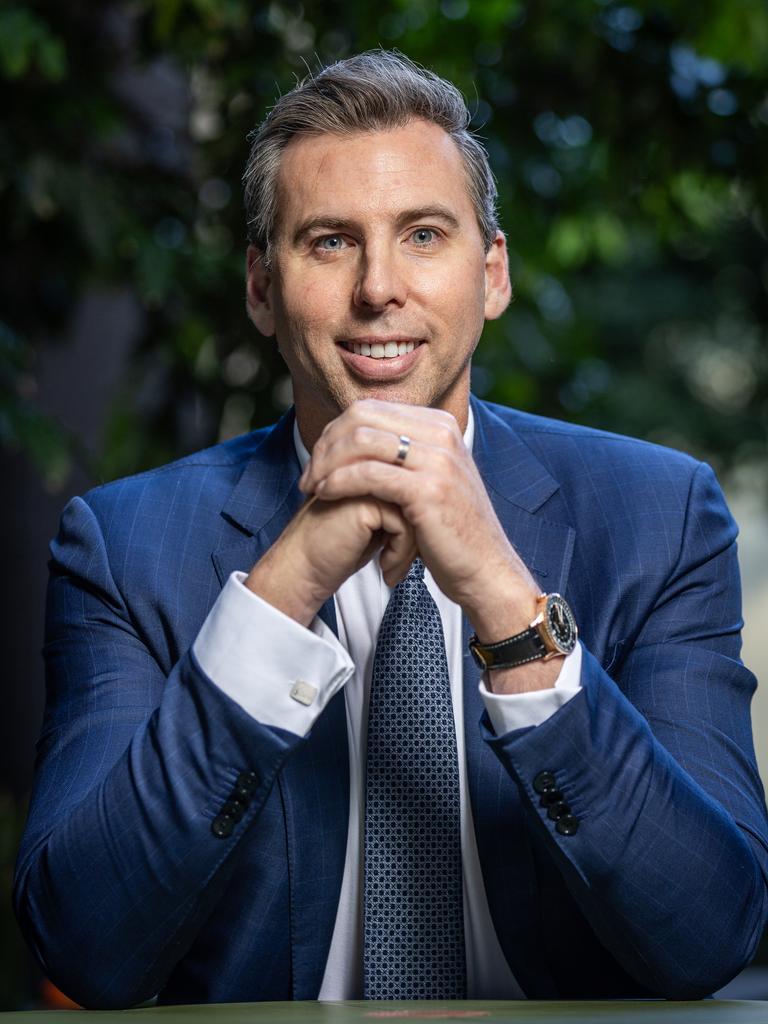
“And the sooner you accept that you’re built like that, and you are going to feel disappointment where people see success – I think that’s OK.
“It just makes you who you are. It makes you probably do what you do so well.
“So unfortunately, I think we almost have to accept that sometimes in those great moments, as much as you win a silver medal or make a final or do something that 0.1 per cent of people might have an opportunity to get exposure to at one point in their life, you almost have to accept that an athlete or an individual at that level of success has huge expectations on themselves.
“And it’s regardless of what the public do for them or don’t do for them, or sponsors or media attention or profile – it doesn’t matter. It’s them.
“Because I know that was me.
“That was my expectation.
“Because everyone around me, including the media, were really happy – but a part of me was reflecting on it, and I still look at those silver medals and feel a sense of sadness.
“People get shocked by that, but I’m accepting of that now, and I’m accepting of who I am, but it took me a while to appreciate that about myself.”
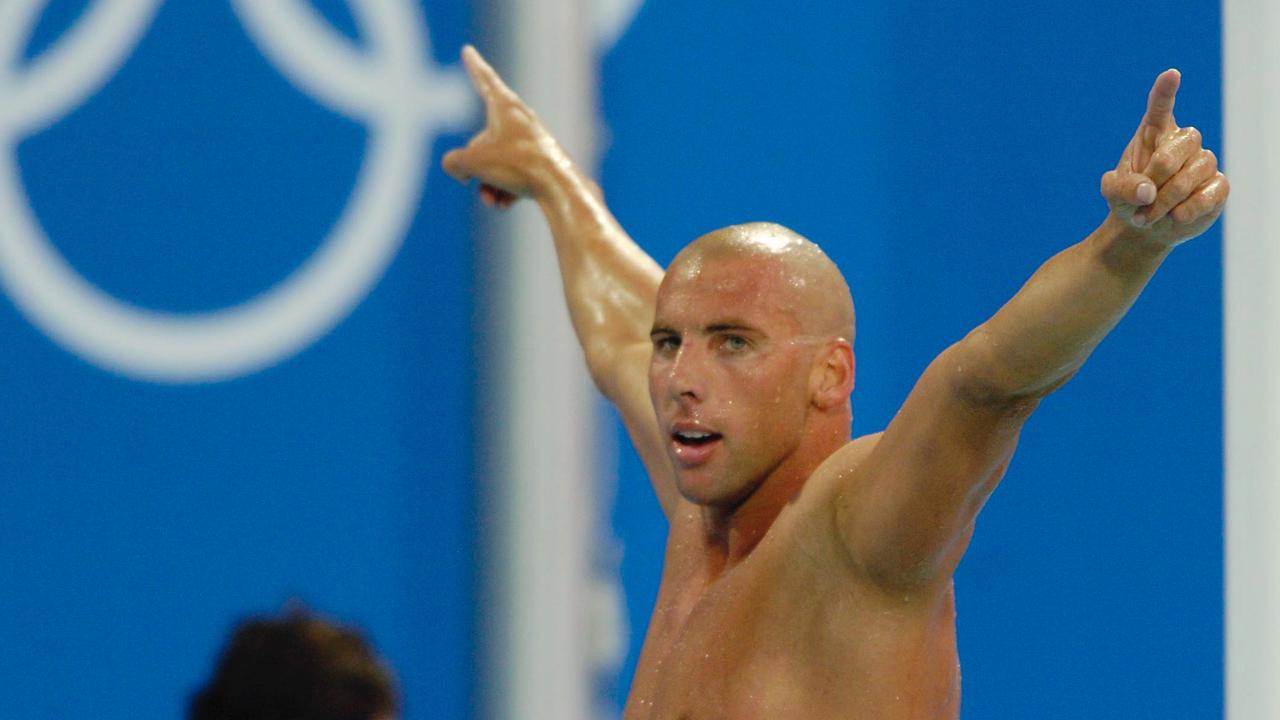
His honest admissions are spurred by a conversation about Mollie O’Callaghan – a fellow swimming champion who is the best in the world at what she does. But because a silver and bronze came home with her from the Paris Games – along with three sparkly gold, of course – she was disappointed.
And as heartbreaking as that is – that anyone at the top of their game on the world stage would be disappointed in themselves – Hackett understands.
“You almost want to say to someone like Mollie, ‘You are a phenomenal individual gold medallist’ but then in her hundred she felt that disappointment, and she’s very honest and open about that,” he continues.
“But as someone who’s been through that and understands the mindset that’s probably required, or just naturally a part of what you’re doing and who are, I totally get it.
“And you’re probably never going to change it, no matter how much you say how good you are and how great you are – they’re just wired the way they are.
“That comes with that territory.
“And it’s a little bit unfortunate, because I always say there are two types of silver medals – one that you win because you didn’t expect to even get a medal … you’re in a final and then you found yourself with a medal, and you’re like, ‘Wow’. But then there’s when you come into an Olympic Games expecting to win, expecting to be number one – and then you get a silver medal.
“You’re a person who lost the gold medal. And that’s the reality of sport – and it’s brutal.”
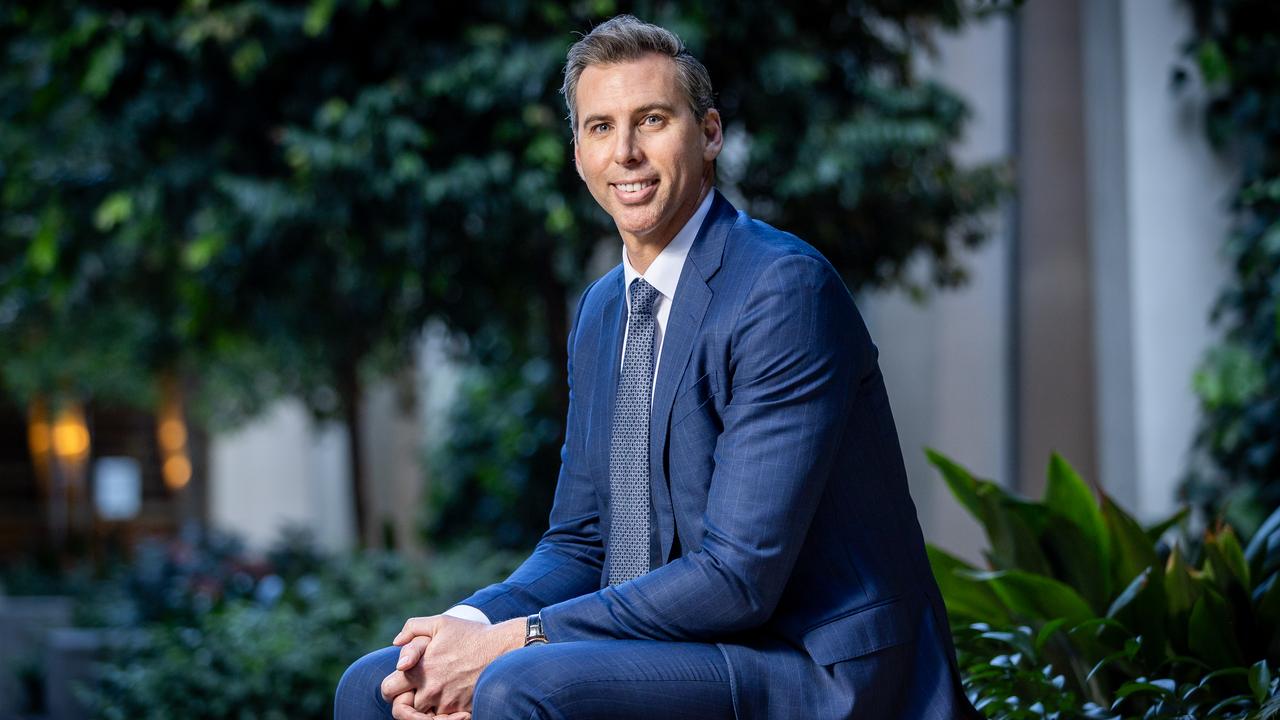
So was Hackett always wired to win? Or is it the pressure of swimming that gets into the heads of our elite athletes?
“I was always like that,” he responds quickly. “But you wouldn’t have perceived me to be like that, because I’m pretty relaxed. Well, I come across as a fairly relaxed sort of character, particularly when I was younger.
“My mum always tells a story of when I was five, I did a swimming race and I touched the wall.
“She says: ‘I just didn’t realise you were even competitive in your mind, and you touched the wall and yelled, Did I win?’ – and apparently I screamed it.
“And she was like, ‘Oh my God, who is this child?’” he laughs. “So I think that was a pretty strong indication.”
Today, Hackett has been successful out of the pool for years. He’s a CEO. He’s a father of four and happily married, living in Melbourne with his wife Sharlene.
So out of all the kids – does anyone have the mindset of an athlete in the making, like he did?
“Funnily enough, the one I see it the most in is Eddie, our four-year-old,” he continues. “He’s just always had that way about him.
“He always wants to win everything – he likes to compete, that’s just him.
“And there’s nothing that we have done differently to any of the other kids, but he’s just like that, so I think it’s a whole nature versus nurture-type argument, but the nature one I feel wins most of the time.”
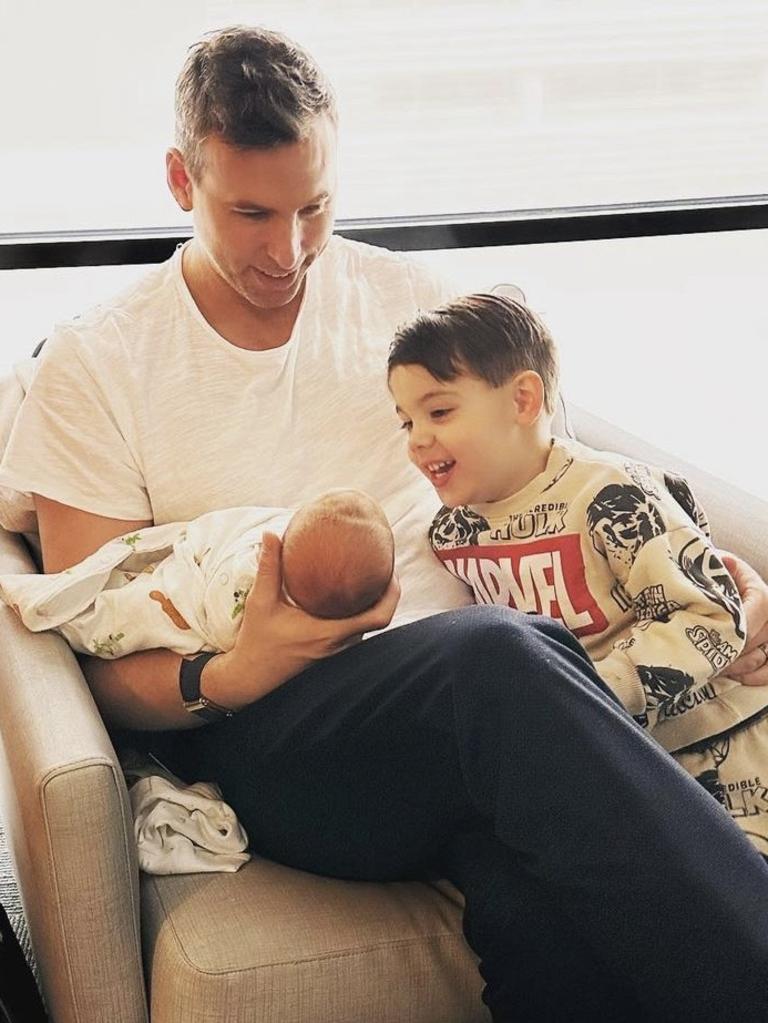
When it comes to their futures, it’s happiness he wants them to strive for. And whatever they do professionally, he’ll be their biggest fan.
“I don’t care what my kids want to do as long as it’s something that’s going to keep them somewhat focused and give them a sense of purpose in life,” he says.
“That’s all I care about. Whatever field that’s in, I’m not really worried about it, because even if they fail, they’ll have learned so much about themselves, and they’re going to be able to take all those learnings into the next part of their life.
“Because even though they say life is short, life’s actually pretty long, there’s a lot of different parts to life, and there’d be nothing worse, I think, than getting to the second half of your life and having absolute regret that your parents didn’t support you in something that you really cared about.
“So I don’t want to be that parent.
“I’d much prefer to be the one that goes – I don’t care if you do it, I don’t care if you don’t want to be elite or anything like that.
“Because I’ve been through that myself.
“Not saying (I had) pushy parents, but in terms of elite level sport – if they want to do it, I’ll absolutely support them to the nth degree on that.”
Despite being so candid, Hackett is naturally a private person.
The 44-year-old is CEO of retirement investment ASX top 300 listed company Generation Life. But, like so many, it took hitting rock bottom to rise to the top: the transition from swimming to life out of the pool. A messy divorce and controversies along the way that related to mental health issues.
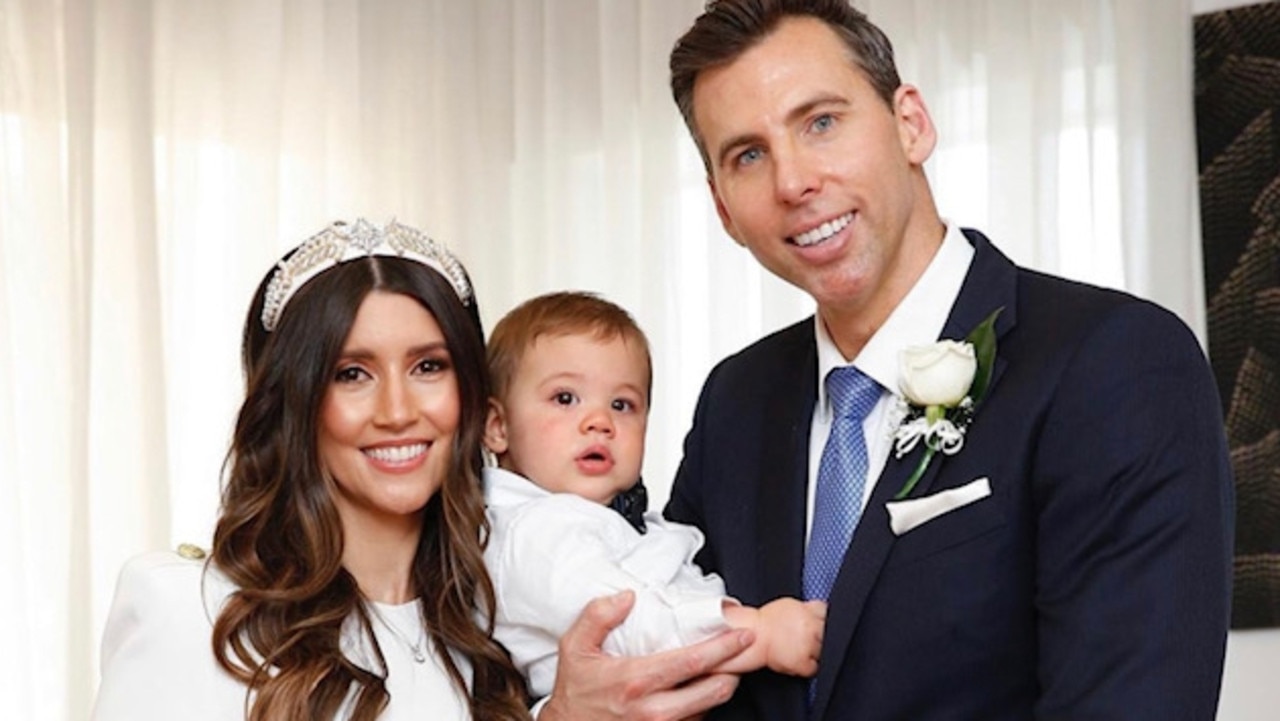
Shortly after his second retirement from swimming he ran into trouble on a flight from Adelaide to Melbourne where he abused a fellow passenger, later apologising for his “poor behaviour”.
In 2011, police were called to Hackett and then-wife Candice Alley’s trashed Melbourne apartment. Then in 2014 he appeared dishevelled and claimed he had lost his son at Melbourne’s Crown Casino hotel complex, before seeking treatment in the US for a sleeping pill addiction.
By his own admission, he hit rock bottom. And the years since have been his most rewarding.
He always knew this corporate world would come. He planned for it, studying commerce and law while he was swimming.
“People often say to me, I guess, when you get good at something that has a bit of profile attached to it – is it worth it?” he says. “And I’m naturally a private person.
“I’m not one who goes after social media or a heap of media attention – it’s just not my personality – I don’t mind doing it, and I can do it – but it’s not something that I crave by any means.
“So for me, (swimming) was all about the competition and winning and stuff like that – and then when I reflect on all the stuff that came with it, and people say was it worth it – I’m like, 10 times over.
“I wouldn’t change it for the world.
“What it taught me, and the opportunity and how grateful I am to be able to compete for a country like Australia and to win for my country, and hear the national anthem play and do all those sorts of things – it was a privilege.
“So as much as I’ve had to deal with the difficult side of having a profile as well, it’s kind of like, well, you know what? You can’t have all the good and then expect to not have some of the bad sometimes when you go through hard periods in life.
“That’s just the way it works.
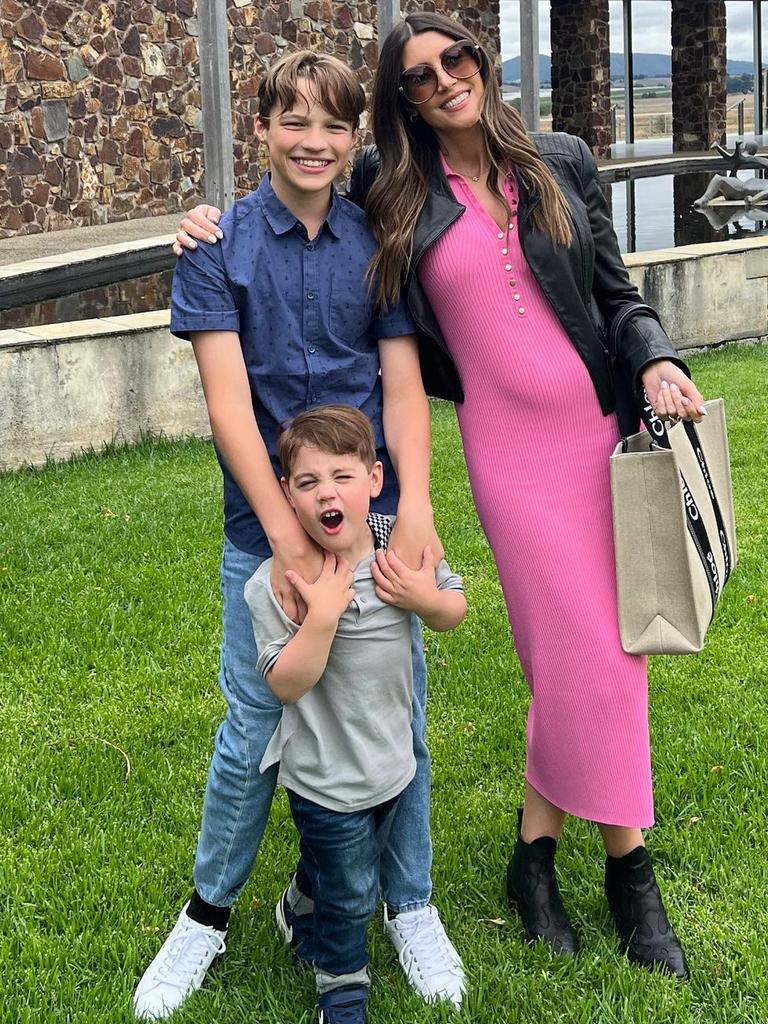
“I’m probably a lot more accepting of that now, because people do ask me – you’ve had to go through some pretty great times, but bad times as well – and that’s just life, unfortunately. So I look back on it, and I’m very grateful for it.”
Today, he’s like any other busy, hardworking dad. Tired. But he loves what he does and relishes what’s important. Family.
“I feel like I should have been born 50 years ago or something, just to slow it down a little bit, because you’re never ‘off’ now, are you,” he continues. “Your devices, and you look at stuff in the middle of the night sometimes, I’m guilty of doing that … it just doesn’t stop.”
As a dad he knows the importance of healthy kids, so he’s a big fan of the Children’s Cancer Institute of Australia, and proud to be their ambassador for this month’s CEO Dare to Cure initiative. He encourages all CEOs to take part in dares that can include snakes or walking on glass or one of the few things that scares Hackett – perhaps a trigger that still haunts him from a lifetime of swimming – an ice bath.
“It’s funny – I’ll never forget my son and I were walking along the beach near where we live, and he knows I did a lot of ocean swimming and was involved heavily in surf lifesaving when I was younger – and he was like, ‘Dad, what do you get scared about when you swim in the ocean? Are you scared of sharks, or the waves?’” Hackett says.
“And I was like, ‘No, I don’t think about that.’ I actually hate the cold. That was always the worst of a surf carnival, if the surf is freezing and you’re cold on the beach – there’s nothing worse.
“People think I would get used to that after many years swimming, but I think I’m almost more scarred. Perhaps because I’ve had to jump in cold water without choice – so those ice baths, as much as I did in pre-recovery as an athlete, they’re never fun – they take your breath away.”
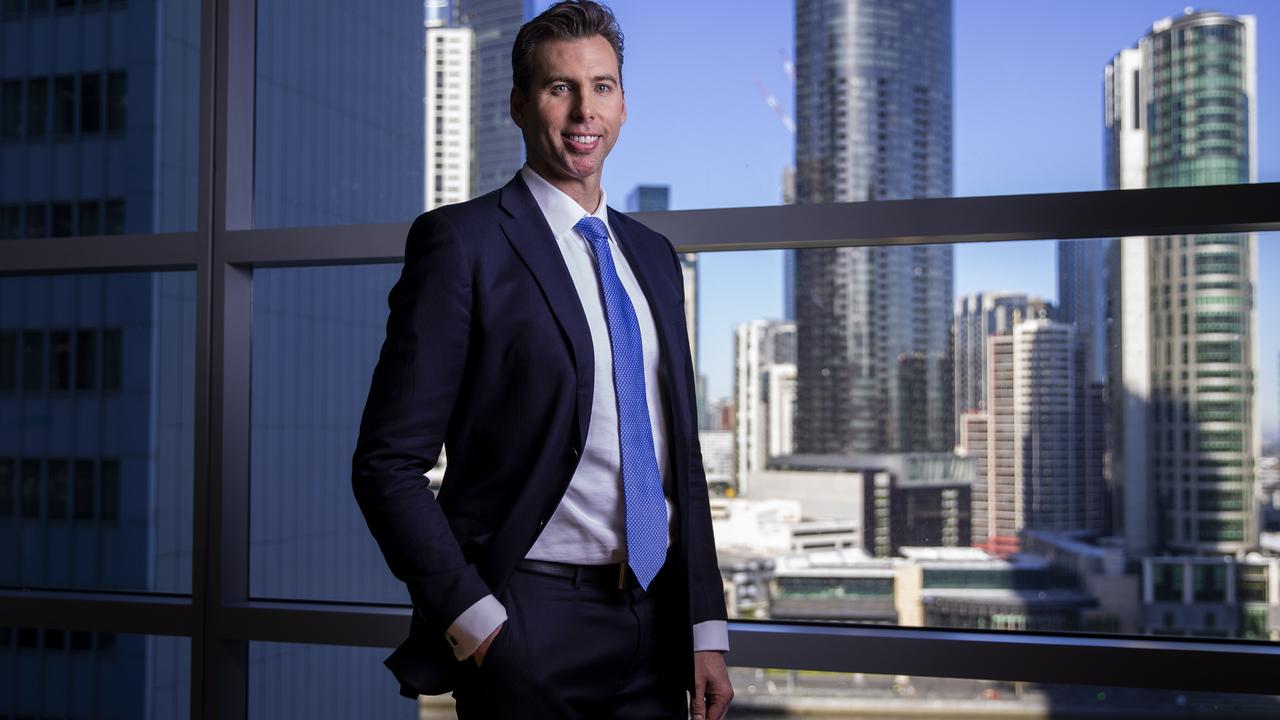
He says swimming put him in good stead for facing challenges – he just follows the same process he did as an athlete.
“As you can imagine, walking around a little 50 metre pool but 20,000 people standing around it, and everyone expecting you to win or break a world record or something, there’s a lot of pressure that comes with that,” he says.
“I really had a very set process around the way I would execute those sorts of things, and I do it now with presentations, important moments in my business career that matter. A lot of it’s around just letting go, on performance. Preparation is everything, because then you can take all of the challenges that come with execution that were unexpected … but when it comes to the time of whatever you’re trying to achieve, I always let go. You’ve got to get to a point where you stop thinking about it, stop circling that thought through your mind, of about worrying about it – and just go, ‘Okay, whatever happens now happens, and I’m just going to give it my best.’
“Swimming definitely taught me how to tackle high pressure moments.”
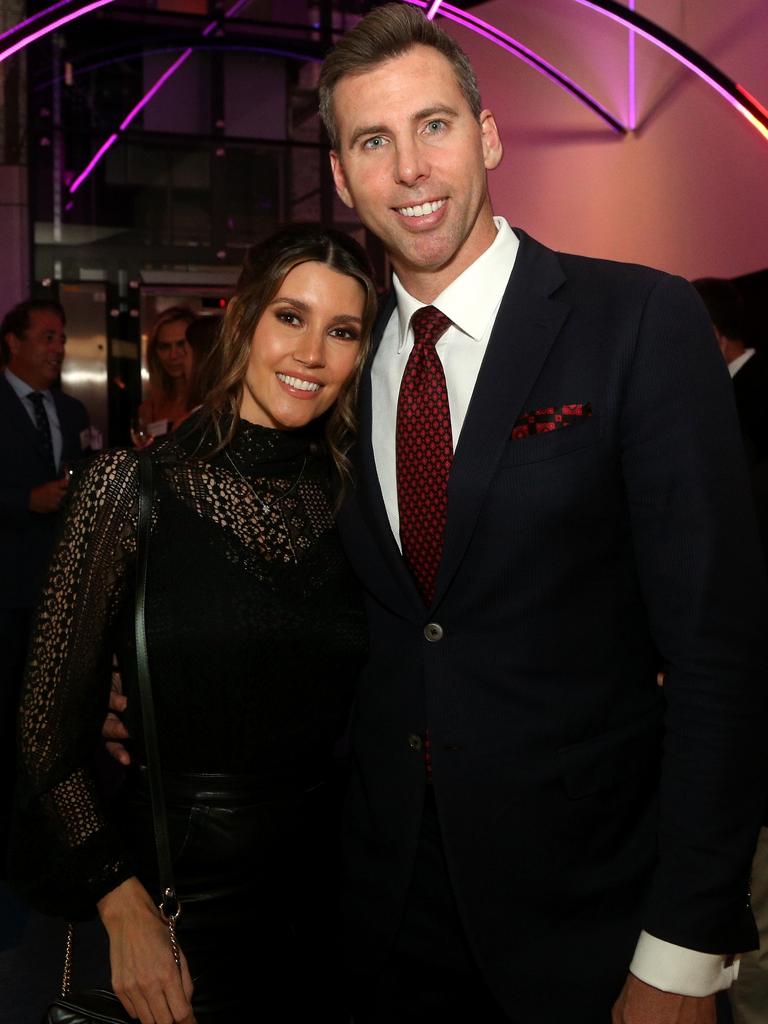
And sick kids? Well there’s no better cause to get uncomfortable for.
“There are a lot of good causes that people could give their money to, but when you hear cancer and children in the same sentence, it makes your heart sink a little bit,” Hackett says.
“I’m no different to any other parent – like what if that was one of my kids? The thing I love about this charity is you actually see the stats. You can see the reduction and cancer being cured and kids going to remission, as opposed to what it was like 15, 20, or 25 years ago, where the stats were very different than what we see today.”
So, life is good. Busy, non-stop and exhausting. It’s work or home and not much else – but that’s just how he likes it.
“I run a pretty big business … we’ve got close to 300 staff,” he says.
“But I’m also a father of four kids … my life is being in the office, or being at home. That’s all I do. And it’s all I want to do. Around that, probably the thing I do for myself is I enjoy staying fit and going to the gym and keeping a decent level of fitness.
“But you’re always just putting back into your family too, right? That’s my goal – to get home and spend time with my kids, kiss them and hug them and enjoy it while they’re young.
“So I find my life is … pretty normal. I’m just a person who works, trying to do the best bringing up my kids and trying to look after myself as best I can.
“That’s kind of it – and that may be pretty boring, but it’s the way I like it.”
More Coverage
Originally published as Grant Hackett talks about family, work and why he feels sad when he looks at his swimming medals




